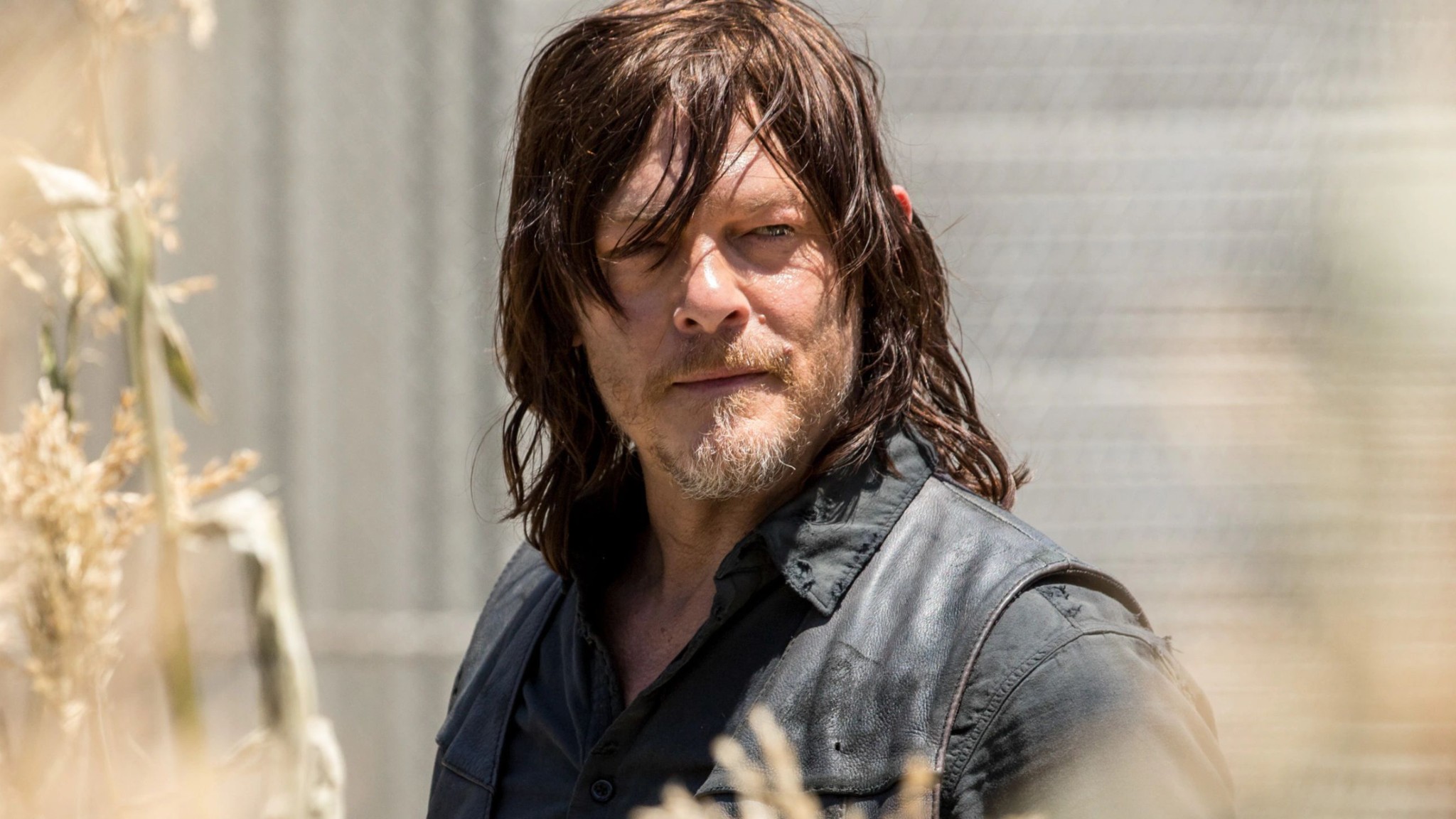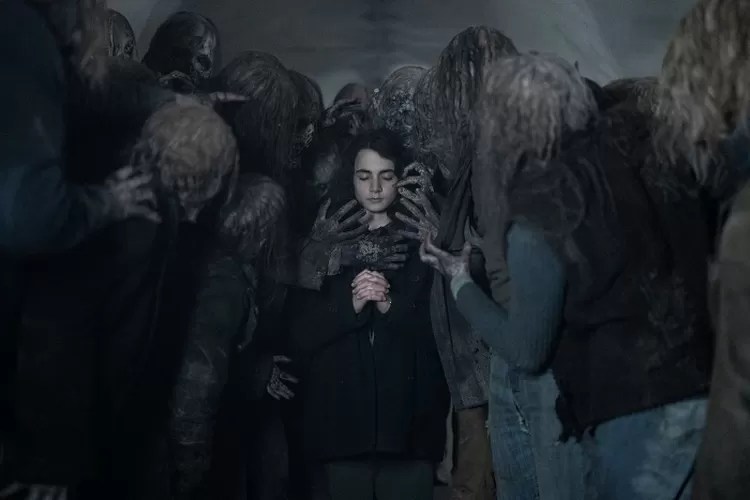
Though zombies may lumber along at a snail’s pace, the puzzling questions they leave behind race by at breakneck speed. Even after concluding its primary narrative over eleven gory seasons, the universe of The Walking Dead persists in expanding through various spinoffs that trace beloved characters as they navigate diverse regions within the post-apocalyptic setting. For instance, Daryl’s escapades in France on The Walking Dead: Daryl Dixon contrast with Rick and Michonne’s reunion in The Walking Dead: The Ones Who Live. These extensions of the franchise maintain viewer interest while presenting new landscapes, characters, and dangers. However, despite all the fresh territory explored, many intriguing enigmas from the original series remain hidden more deeply than a walker in quicksand.
The extensive zombie narrative has generated numerous speculations among its devoted audience, as they meticulously analyze each episode searching for hints regarding the world’s most urgent questions. As the series skillfully blends nostalgia for established characters with fresh avenues, some fundamental enigmas persist in being annoyingly unanswered. Whether these mysteries will eventually be clarified in future spin-offs or remain shrouded forever, similar to the destiny of humanity in this undead realm, is yet to be seen. Here are the seven most intriguing mysteries from the Walking Dead series that linger in the darkness, tormenting fans even after the main storyline ended.
What Happened to Other International Communities?

In “The Walking Dead,” much of the action takes place across America’s post-apocalyptic terrain. However, Daryl Dixon’s European journeys revealed a different perspective on how various regions could cope with the zombie pandemic. The walkers in France displayed unsettling new abilities, implying that the virus mutates differently in different parts of the world.
From a worldwide viewpoint, there are intriguing narrative opportunities that have yet to be fully tapped. For instance, has the success of certain countries been influenced by factors such as geography, population density, or unique cultural responses to crises? Might secluded societies on islands or highland plateaus have managed to survive and thrive independently? The diverse types of ‘walkers’ seen in France suggest intriguing regional variations—maybe swifter zombies in some areas, immobile ones elsewhere, or even communities that developed effective containment strategies.
The global puzzle deepens as we ponder how nations’ pre-catastrophe interactions could have changed. Were there any governments that endured long enough to set up communication systems? Did military forces collaborate in their responses? Given the existence of large-scale organizations like the Commonwealth and Civic Republic Military in America, viewers speculate about similar powers potentially hidden across continents, just waiting to be uncovered.
Will Rick and Daryl Ever Reunite?

The strong bond between characters Rick Grimes and Daryl Dixon served as the emotional backbone for the initial seasons of The Walking Dead. Their parting after Rick’s helicopter exit in Season 9 generated one of the series’ most eagerly awaited possible reunions—a scene that fans have longed to see unfold for years.
In the latest episode, the characters known as The Ones Who Live restored Rick to the storyline, allowing him to reconnect with Michonne. However, the long-awaited reunion between Rick and Daryl, his loyal right-hand man, has yet to occur. Norman Reedus, who portrays Daryl, has openly expressed a desire for this meeting to take place, but finding the opportunity within their separate spinoff series poses logistical difficulties. The emotional intensity of such an encounter would be immense, given that Daryl never ceased searching for Rick and consistently wears his gun as a symbol of their connection.
As Daryl is traveling through France and England at present, while Rick has gone back to America, their geographical separation seems almost unbridgeable. However, considering the series’ penchant for emotional reunions and the significance of this sibling-like bond, fans speculate that the showrunners will eventually reconnect these brothers by blood, perhaps in a future cross-over episode which could mark the climax for both characters’ stories.
How Many Years Have Passed Since the Original Outbreak?

The sequence of events in the world of “The Walking Dead” has grown progressively confusing, particularly with multiple spin-offs taking place at distinct stages of the apocalypse. For instance, “Fear The Walking Dead” delved into the early days of the outbreak, whereas shows like “The Walking Dead: Dead City” and “Daryl Dixon” unfold well after the main series has ended.
This temporal ambiguity makes it challenging for spectators to grasp the elapsed time since the world’s collapse. Is it a decade? Perhaps longer, like 15 years? The answer significantly impacts our interpretation of character growth, landscape transformations, and technological decay. With no definitive timeline, it becomes hard to appreciate how societies have progressed or how nature has reclaimed cities.
As a movie buff, I can’t help but ponder the impact of time on the fictional worlds we see on screen. Characters like Judith and Hershel Jr., for instance, have been raised in a perilous environment, knowing nothing else. Their outlook on society would be starkly different if they’ve survived five years of apocalypse compared to fifteen. The deterioration of infrastructure and resources – from crumbling buildings to rotten gasoline – should mirror the passage of time accurately, preserving the logic within the world itself.
Can The CRM Actually Be Defeated?

In the world of “The Walking Dead,” it was the Civic Republic Military that proved to be the toughest human adversary. Initially appearing in the main series, they were further developed in “World Beyond” and “The Ones Who Live.” This military faction is equipped with resources, technology, and personnel that surpass any community we’ve encountered so far.
Pondering if and how the Community Resource and Management (CRM) should be defeated presents intriguing scenarios for future narratives. Although Rick and Michonne have clashed with parts of this group in “The Ones Who Live,” the CRM still stands strong. As a potential central antagonist across all series, uncovering the CRM’s final destiny could weave a common narrative throughout various spinoffs, from my perspective as a dedicated fan.
The intrigue surrounding this enigma is heightened by the CRM’s moral grayness. Unlike typical villains like the Governor and Negan who are purely evil, the CRM genuinely believes that their authoritarian tactics are essential for the preservation of humanity. Their extensive resources could be crucial in uncovering or addressing the origins of the walker virus, and destroying them entirely might prove disastrous for human survival in the long run. This ethical conundrum raises the CRM enigma above mere questions of victory or defeat, adding depth to the narrative.
What’s Laurent’s True Connection to Walkers?

Daryl Dixon introduces us to Laurent, a youth who seems to have a unique link with zombies. This unusual tie occasionally makes them behave differently towards him than they do towards other humans. Throughout the first season, this enigmatic relationship stirs up many intriguing questions about the origin and development of the walker virus.
Could it be that Laurent possesses some form of immunity? Or perhaps he holds a crucial piece in solving or even finding a cure for the virus? As the third season of Daryl Dixon unfolds, delving into Laurent’s true identity could offer fresh perspectives on the core mystery behind the series. However, with Laurent now transferred to America and Daryl and Carol embarking on their journey through England, this particular thread seems to be put on hold for now.
One fascinating new element in the lore of the Walking Dead franchise is Laurent’s relationship with walkers. If his unique biological traits are indeed real, he may play a pivotal role in shaping the future of the entire Walking Dead universe. However, since his narrative has been put on hold, fans will have to stay tuned to find out if his interactions with walkers signify a genuine evolutionary advancement or just coincidental behavior among the undead.
Will There Ever Be a Cure for the Walker Virus?

The idea of a cure has been suggested across the series, starting from Eugene’s initial misleading statements and extending to scientific investigations by the CRM and other organizations. The television show World Beyond revisited this theme through its emphasis on research facilities studying the virus, while recent events involving Laurent indicate possible immunological advancements.
Developing a cure could drastically alter the setting of “The Walking Dead,” possibly leading to the reestablishment of the pre-outbreak society. This raises interesting storyline questions about whether the series would opt for such a radical change or persist with themes of survival amidst a zombie apocalypse. The discovery of a cure would also bring up complex issues, like who should receive it and how distribution would be managed in a shattered world.
The question of a cure symbolizes the last glimmer of positivity in an otherwise dismal cosmos. Initially, the series mainly explored survival, but as it progressed, the narratives began to hint at the possibility that humanity could rise above the apocalypse, not just survive it. Whether this optimism becomes reality or turns out to be yet another heartbreaking letdown is one of the most intriguing unsolved enigmas in the franchise’s history.
How Did the Virus Actually Begin?

In the realm of “The Walking Dead” series, the source of the walker virus remains the most intriguing enigma. Although “World Beyond” offered some clues in its post-credit scene, which depicted a French research facility, it did not definitively reveal the original cause. However, this scene subtly hinted that French scientists could have been involved in creating or speeding up versions of the walker virus.
Investigating the origins of the apocalypse is crucial for understanding the entire storyline. Was it caused by a spontaneous evolution, a man-made virus, or something completely unexpected? The series hints at links to research centers and government bodies such as the CRM, but clear responses are still elusive. Despite delving into numerous post-apocalyptic survival topics, this fundamental query remains intriguingly undisclosed.
The origin of the virus holds significant philosophical impact that transcends simple curiosity. If the virus was a result of human experimentation, it paints the apocalypse as a warning tale about overstepping scientific boundaries. On the other hand, if it emerged naturally, it underscores our vulnerability against the forces of nature. Regardless of its origin, this revelation has a profound impact on how viewers perceive the show’s themes concerning civilization, human nature, and our ability to both destroy and endure in the midst of disaster—making it the most thought-provoking unanswered question within ‘The Walking Dead’.
Read More
- PI PREDICTION. PI cryptocurrency
- Gold Rate Forecast
- Rick and Morty Season 8: Release Date SHOCK!
- Discover Ryan Gosling & Emma Stone’s Hidden Movie Trilogy You Never Knew About!
- We Loved Both of These Classic Sci-Fi Films (But They’re Pretty Much the Same Movie)
- Mission: Impossible 8 Reveals Shocking Truth But Leaves Fans with Unanswered Questions!
- SteelSeries reveals new Arctis Nova 3 Wireless headset series for Xbox, PlayStation, Nintendo Switch, and PC
- Discover the New Psion Subclasses in D&D’s Latest Unearthed Arcana!
- Linkin Park Albums in Order: Full Tracklists and Secrets Revealed
- Masters Toronto 2025: Everything You Need to Know
2025-04-15 04:40